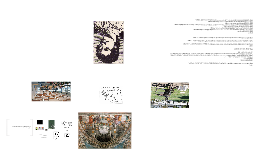

Such new findings have replaced the older school of thought surrounding the notion that there is only one single system of memory. This example brings to light the fact that procedural memory and declarative memory are not only stored in different regions of the brain, but also undergo completely different processes of encoding. From then on every time he is presented with the puzzle, he will believe he is seeing it for the first time while progressively solving the puzzle faster and faster with each attempt. For example, a person with Alzheimer’s can be presented with a puzzle, which he will then solve. In many instances where people have lost their declarative memory for a reason such as Alzheimer’s, they seem to still hold onto their procedural memory. People either having eidetic memory or Hyperthymestic syndrome have a super mind with super memory ability.Long term potentiation (LTP) can be broken down into declarative memory (AKA explicit memory) & procedural memory (AKA implicit memory). Some people mix eidetic memory with hallucinations because of its recalling method and some mixed hyperthymesia with autism because of the perfection of details. An eidetic memory, people only recall memory when they want to think about it.Įidetic memory and Hyperthymesia both look the same, but there is a little difference in them. People with hyperthymesia or Hyperthymestic syndrome keep on thinking about their past life all the time, but it does not happen in eidetic memory. People with eidetic memory reported that after a few minutes of removal of visual stimulus, vividness and stability of image start getting fade. Some people find hyperthymesia a burden, but eidetic memory is interesting to people suffering from it because they like learning via seeing things again and again. Both of these conditions are rare and not commonly seen. Hyperthymestic people can remember each and everything of an event like image, date, day, color, audio, and other information, but eidetic memory is commonly associated with images other than auditory and sensory information. According to research, 2 to 10 percent of children are affected by eidetic memory in 6 to 12 years of age. Eidetic memory is commonly seen in children, but hyperthymesia can attack at any age. With eidetic memory, people recall memories in the form of photographs one after the other. Well, eidetic memory is not perfect because it includes distortions and additional thoughts with multiple auditory information. That is why it is also known as a perfect memory. People with eidetic memory do not remember each and every detail of the event, but Hyperthymestic people can recall it perfectly with each and every detail. When people saw any image, they memorize it. Eidetic memory is also known as photogenic memory because it is related to the visual ability of a person. People with eidetic memory require 2 to 3 exposure to an image or scene to memorize it, but hyperthymesia memorize it on 1st exposure. Hyperthymesia is considered more accurate in memorizing things as compare to an eidetic memory. Eidetic memory is related to images and scenes and sometimes clues, but hyperthymesia is not related to anything because in hyperthymesia, people do not have to memorize anything, but they memorize it on 1st look. Eidetic memory is defined as a condition in which people are able to slightly recall images in their mind after 2 to 3 times exposure to that specific image.īoth these terms are related to memory, or we can say people with eidetic and hyperthymesia have sharp memory as compare to an average person. They mostly recall events related to their personal life and experiences they have. They can recall almost every day of their past life. Hyperthymesia is defined as a condition in which people can recall their past life in an almost excellent way without any hesitation. To learn about the difference between eidetic memory and hyperthymesia, we should have a clear concept about both conditions.


 0 kommentar(er)
0 kommentar(er)
